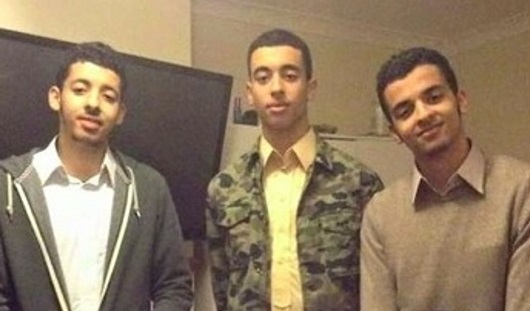Manchester Arena inquiry: Bomber appeared in at least 18 MI5 investigations, inquiry hears
From Sky News
The Manchester Arena bomber had appeared in MI5 investigations on more than 18 separate occasions including for attempts to travel to Syria, it has emerged.
Salman Abedi had travelled out to Istanbul, a known gateway for extremists heading to Syria, in May 2016, the year before the attack, the inquiry into the bombings has heard. Information had twice come to MI5’s attention that he wanted to travel to Syria but was “discounted” when he did not go, and they were also told that he held “pro-ISIS views.”
MI5 admitted that information had come to their attention in “mid 2016” that led to them consider re-opening the case, but a meeting was not scheduled to consider doing so until 31 May 2017, nine days after the attack.
The information about Abedi’s links to Syria emerged as MI5 gave its most detailed account of what they knew about the bomber, three years after the attack. The Security Service also had two further pieces of information which is so critical to the public inquiry it will have to be heard behind closed doors.
Cathryn McGahey QC, for the Security Service, said “the very nature of MI5’s work is secretive and the fact that we cannot make everything public inevitably increases suspicion.” But she pledged: “There is no question of secrecy bring used to conceal failure.”
Meanwhile, the inquiry was also told the fire service response to the Manchester Arena bombing was “neither adequate nor effective”. Its lawyer Andrew Warnock QC said it was “unacceptable” that Greater Manchester Fire and Rescue Service (GMFRS) took more than two hours to attend the incident and apologised to the families and victims. He said the fire service had trained for the wrong type of terrorist attack and no one believed they were in control on the night of 22 May 2017.
The fire service received “virtually no contact” from Greater Manchester Police at all prior to its arrival at the arena and there were failures in communication with the ambulance service, who “were also obviously aware that GMFRS were not at the scene”,
Police personnel patrolling Manchester Arena were also absent from patrol for more than two hours, the inquiry heard.
Four British Transport Police (BTP) operatives were present on the night of the attack, one PC and three PCSOs, patrolling in pairs, the hearing in Manchester was told. It heard PC Jessica Bullough and PCSO Mark Renshaw took a break at about 19:30 BST, leaving Manchester Arena to buy food, as the Ariana Grande concert began on 22 May 2017.
They returned 45 minutes later and resumed patrolling two hours and 10 minutes after they first departed to buy food, the inquiry heard. Two more PCSOs, Jon Morrey and Lewis Brown, took an hour’s break from 21:15.
Between 21:15 and 21:37, it appeared no BTP officer was patrolling the railway station, when Abedi took up his position at 21:33 in the foyer of the venue, the inquiry heard. Earlier, the two PCSOs had conducted a routine check on toilets at Victoria Station at 20:49, less than a minute after Abedi left there. Salman Abedi, dressed in black and bent over by the weight of the home-made bomb in a large rucksack, later made his way to the foyer where he detonated the explosive, killing 22 people.
To be fair to the officers on the ground the concert was a safe one from a policing point of view; a pleasant young woman singer with an audience of wholesome girls chaperoned by their mothers and older sisters. Not a gig likely to produce knife fights between rival drug dealers, or drunks throwing beer and punches at each other. I won’t say nobody expected a suicide bomber deliberately targeting innocent British girls, because one has to expect such things nowadays. But with the music in full swing I’m sure the place was quiet enough that a meal break wasn’t dereliction of duty. There was plenty went wrong that evening; I’m not laying the blame at two PCSOs in need of a cup of tea. I have other places to lay it, much higher up the food chain.
Patrick Gibbs QC, who is representing the British Transport Police (BTP) said that the BTP had no intelligence about Abedi, despite him being known to the security services and counter-terrorism police.
 “But what of the other potential murderers, we don’t yet know their names,” Mr Gibbs told the inquiry.
“But what of the other potential murderers, we don’t yet know their names,” Mr Gibbs told the inquiry.
(L-R) Salman Abedi and his brothers Hashem and Ismail
He talked about the “intricate and lengthy and carefully planned preparations” of the Abedi brothers, which were detailed earlier in the inquiry and during Hashem Abedi’s trial. “They must have received technical help and financial help and training and support from other people. Other people must have known, or at least suspected, what they were up to and those other people are at large.”